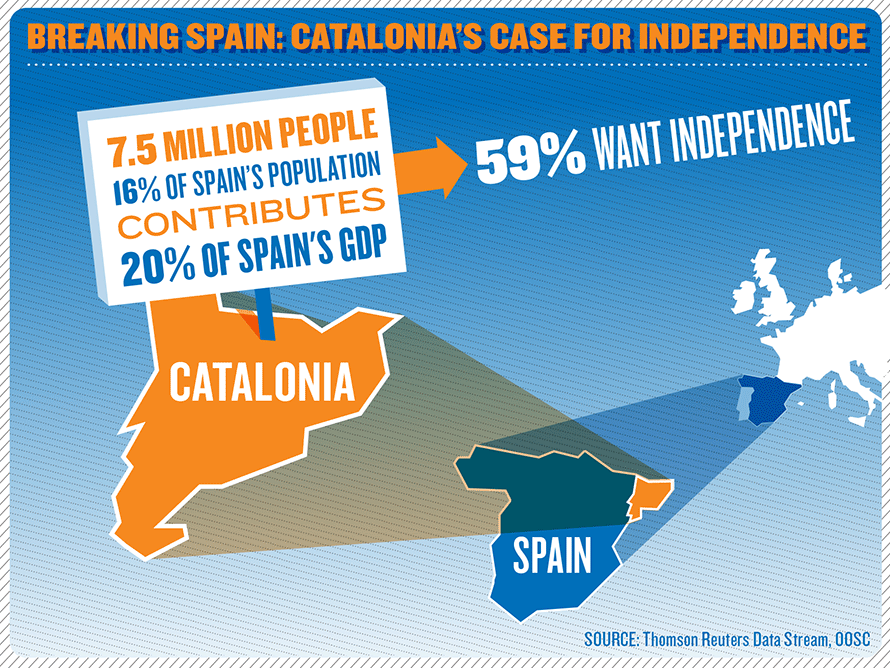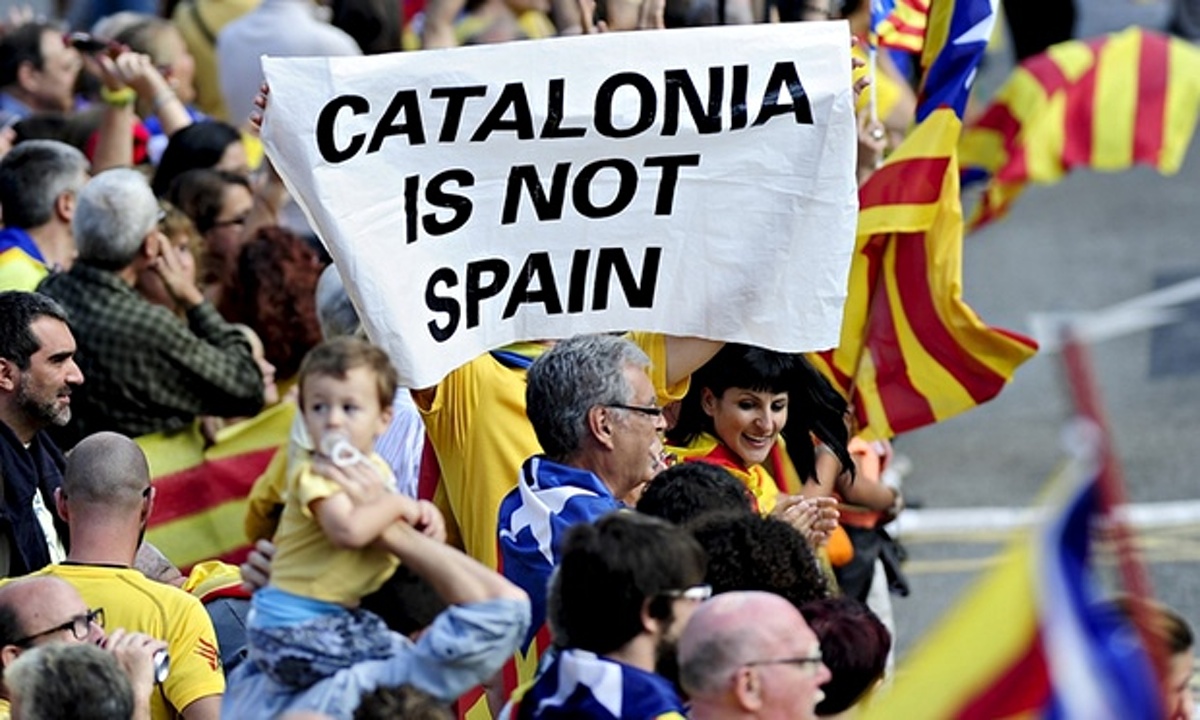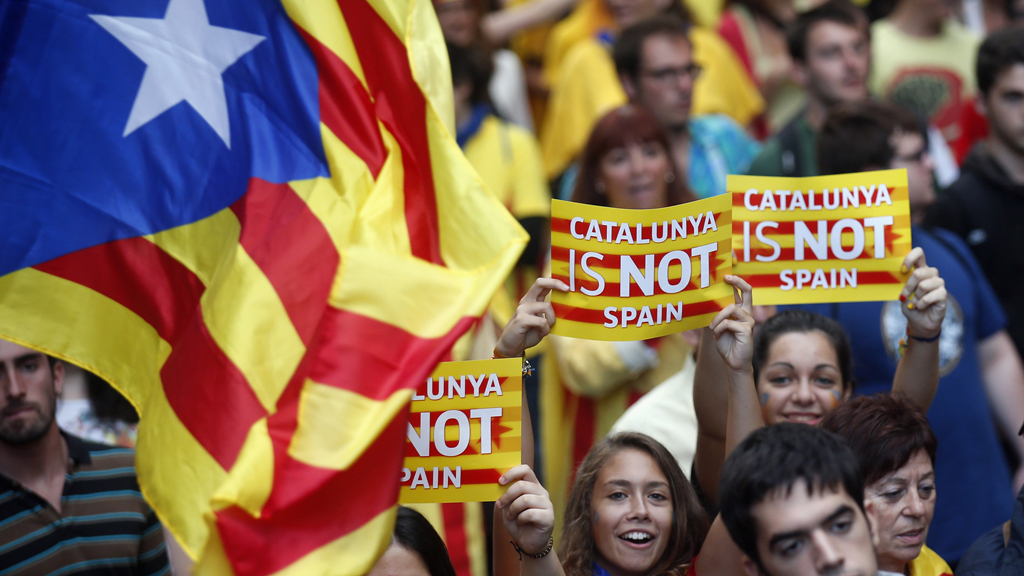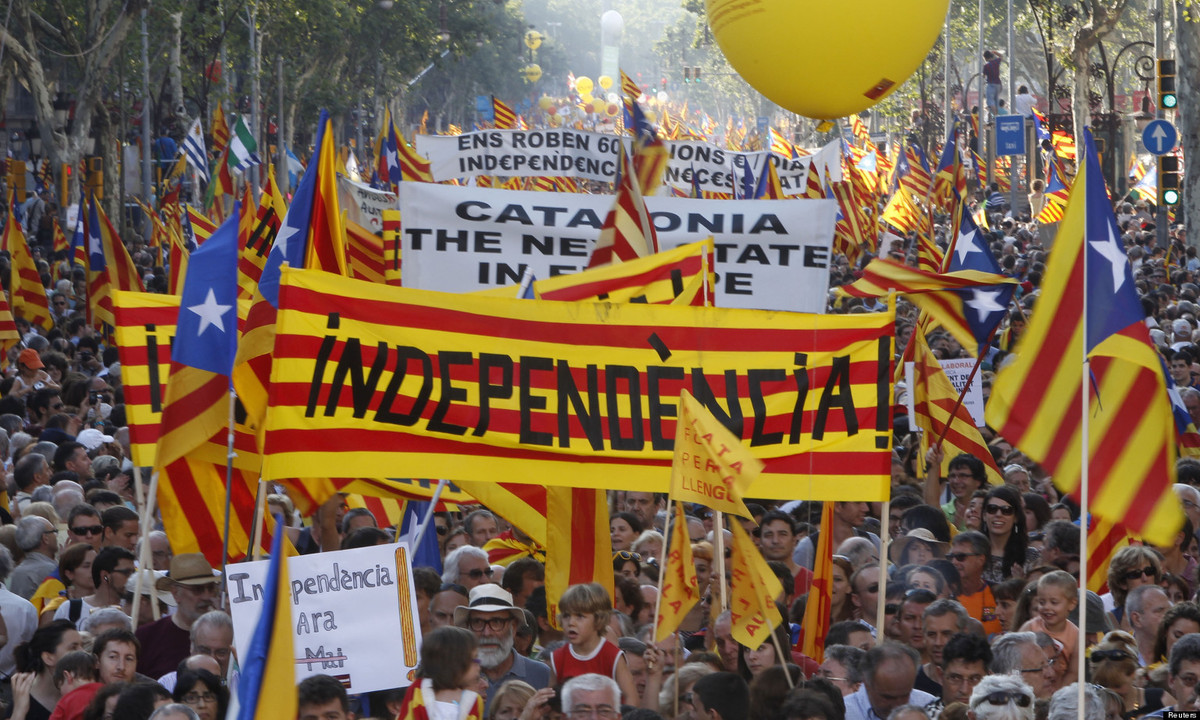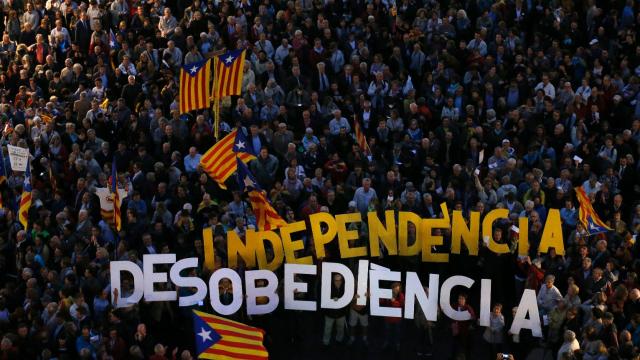
After the horror that struck Paris over the past week, it could be easy to miss the news that the Catalan Parliament has formally started a unilateral process of independence from Spain.
The call to become a Republic was supported by the Junts pel Sí (Together for Yes) coalition and the smaller CUP anti-capitalist party, which hold a Parliamentary majority. Spain’s constitutional court has asserted the moves are illegal, and many leading Catalonian parliamentarians are now being threatened with jail for their roles pushing for the transition.
“In Catalonia we feel mistreated and misunderstood [by the Spanish state]. Be believe we deserve to be a nation – we identify as one. So why can someone from Madrid say we are not? We have voted democratically and they just ignore us," Neus Sanchis, a translator in Barcelona, told Occupy.com.
The last Catalonian elections, held in late September, served as a proxy-independence referendum. Junts pel Sí and CUP won a majority in the Parliament, according to the way seats were allocated, after receiving 48% of the votes. The below-50% figure is often used against them in Spanish media, though it still gives the coalition a clear lead over the 37% who voted pro-unity. The rest of the votes went to pro-referendum parties, non-aligned to either separation or the status-quo.
The process advances
Catalonia's previous Parliament had a democratic mandate to hold a referendum, but the Spanish state also declared this illegal; in an unofficial poll held last year, 80% of Catalans chose separation.
Over the last decade, the Catalan independence movement has surged, despite Spain's central government in Madrid consistently declaring the actions by the Catalan Parliament illegal. In 2005, a democratic process altered the Statute of Autonomy, defining Catalonia as a nation though without giving it greater powers.
But after legal ratification, the conservative Popular Party led a campaign that saw the constitutional court overturn the statute. In reaction, Catalan towns and villages began holding unofficial referendums in favor of independence. Catalan National Day demonstrations have also grown, with as many as 2 million people taking to the streets to call for independence of this nation of 7.5 million.
The referendums and protests have been organized by grassroots organizations that have created new spaces for collaboration, said Sanchis. “With the economic crisis and their failure to listen to us, I think this has caused many people to want independence. Many people, like me, have always believed in independence. Spain occupied Catalonia and Valencia, where I’m from, which is also Catalan speaking. We deserve independence, or at least the right to choose," she said.
At the same time, increased Spanish attempts to crush Catalonia's independence movement have seemed to galvanize it further.
“The Spanish state only has a short tradition of democracy (since 1975), and its government thinks its rules are unbendable," said Gerrad Morell, a freelance journalist. “They say our Parliament is acting illegally and against democracy, when in reality it’s expressing the people's will.”
There are broader motivations for independence than the simplified version that is often found in international news coverage, which asserts that Catalonia gives more money to Spain that it receives back. Catalonians have a strong dislike for King Felipe, whose father Juan Carlos was selected by Gen. Francisco Franco to take over following the dictator’s death.
A state divided
Another source of people's anger is the corruption across the Spanish state. Support for both the conservative PP and social democratic PSOE parties have declined greatly across Spain due to endemic corruption scandals. Catalonia's political ranks, meanwhile, are implicated in a lot of corruption as well.
Jaume Martín Raya, a student in Barcelona who does not support Catalan independence, said, "I won’t exactly be sad if Catalonia becomes independent, but I think a country with Artur Mas in power is exactly the same as Spain with PP. So in the last election I voted CUP, even though they want independence, as they are really progressive.”
Artur Mas, the current leader of the Catalan Parliament, has failed in two rounds to be re-elected as parliamentary leader due in large part to his record of corruption and his policies of austerity cuts.
A further misrepresentation of the bid for independence has framed this as a personal battle between Mas and Spain’s Prime Minister Mariano Rajoy. However, this focus neglects the significant progressive shifts underway in the Catalan Parliament – not least the anti-capitalist CUP’s growth and influence, and the Junts pel Sí coailtion that includes groups from the left and people’s movements, which strengthened after the 15M movement of 2011.
Catalonians of many political persuasions make up the independence movement, while the two establishment parties of the Spanish state have created a united front against it. Despite the strong wishes of most that Catalonia remain part of Spain, there seems to be little love lost from some of the more divisive and hostile elements – like former Spanish PM Alfonso Guerra, who said Spain needs to put down the rebellion just as the rebellion was put down in 1934, and the senior PP spokesperson who tweeted that Artur Mas should be sent to a "fusilamiento," or firing squad.
“These comments are very upsetting," said Marta Martinez, who spoke to Occupy.com at a CUP pro-independence rally last week in Barcelona, where bullet holes are still visible in walls across the city. "Barcelona has been bombed a great deal in the last two centuries. And to bring up a war situation is crazy, as you can see things here are peaceful,” she said.
A lot of people in Spain, and outside it, get the wrong impression from the media that Catalonia is on the verge of civil strife, she added. While political future remains uncertain, she said, "I hope for a new nation that cares for people, not business. We need to solve poverty here in Catalonia, and need to create a state that doesn’t repeat the same mistakes."
"We must stop working for the 1%, stop working for big countries and doing what the U.S. tells us. My hopes are for the people – and for a government serving the people.”
3 WAYS TO SHOW YOUR SUPPORT
- Log in to post comments

